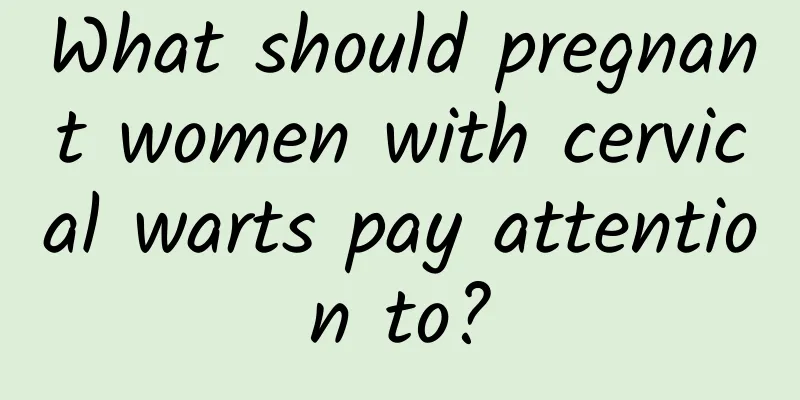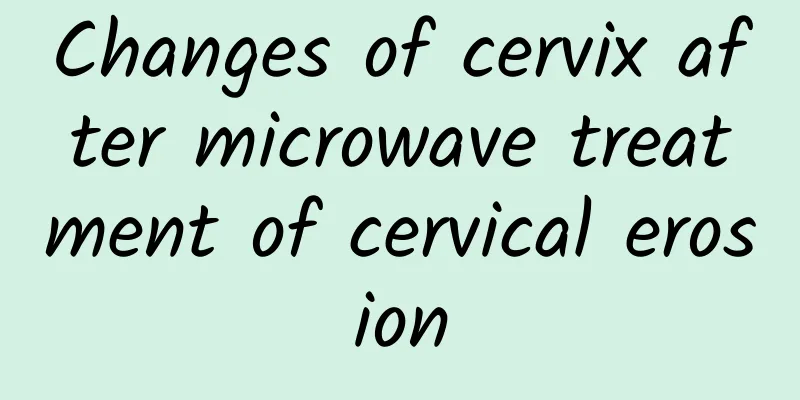What should pregnant women with cervical warts pay attention to?

|
Cervical warts are a common sexually transmitted disease that is very harmful to patients. For female friends, if they suffer from cervical warts, it will not only harm their health, but also affect their future fertility. In addition to active and regular treatment, pregnant women with cervical warts also need to pay attention to care in daily life. So what should pregnant women with cervical warts pay attention to? Let's learn about it together. Experts point out that due to the special physiological state of pregnancy, the choice of treatment methods for cervical warts during pregnancy is greatly limited. Although there are many methods for treating cervical warts in clinical practice, such as microwave, laser cutting, etc., some methods and drugs have toxic side effects on pregnant women and fetuses, and surgical excision is prone to scar formation. Therefore, pregnant women must be particularly cautious when using medication. During pregnancy, women are more susceptible to HPV infection due to increased estrogen levels in their bodies, which can cause cervical warts. The lesions then develop rapidly, becoming large in size, large in number, and growing fast. In addition, the wart tissue is soft and brittle, rich in blood vessels, and difficult to cure. It is prone to recurrence, making treatment difficult. Cervical warts are prone to recurrence during pregnancy. Early detection and treatment can reduce the chance of recurrence and spread. We believe that removing cervical warts as soon as they are discovered can reduce the chance of recurrence and prevent the virus from spreading to infants and young children. Most cervical warts lesions in pregnant women are multiple at first, and a few are single. The lesions increase and enlarge rapidly, especially in the second trimester. The lesions grow fast and are prone to form diffuse lesions or larger cervical warts lesions, causing cervical warts to block the vagina and urethra, and are prone to bacterial or fungal infections. At present, some traditional therapies for treating HPV in clinic, such as laser, freezing, surgery, etc., have the disadvantages of incomplete treatment, long course of treatment, easy to leave scars, etc. Among them, the most difficult problem to overcome is the problem of repeated recurrence of HPV after treatment. |
<<: What to eat after surgery for cervical warts
>>: Does cervical warts affect pregnancy?
Recommend
Health care methods and precautions for uterine fibroids
Uterine fibroids, also known as uterine leiomyoma...
Does vaginitis affect pregnancy?
Will vaginitis affect pregnancy? Vaginitis is a g...
Symptoms of vaginal candidiasis
Candidal vaginitis, also known as vulvovaginal ca...
What to eat after uterine fibroid surgery to supplement nutrition What are the common uterine fibroid surgeries?
Uterine fibroids are one of the most common gynec...
Which hospital is best for treating pelvic peritonitis?
Pelvic peritonitis is a very common gynecological...
How can women treat cervical erosion of degree 2? Chinese medicine treatment of degree 2 cervical erosion is effective
Many women are troubled by cervical erosion, whic...
Are you stress-induced obesity? Find out the 9 major factors of obesity! Dr. Liu Boen: 4 keys to healthy weight loss
According to statistics from some literature jour...
How can women prevent pelvic effusion in their daily life?
How can women prevent pelvic effusion? In our cli...
Why does adenomyosis cause severe back pain? What should I do?
Why is adenomyosis serious and what should I do? ...
What is the chance of sudden cardiac death during exercise?
Exercise is good for your health, but it is not w...
Can cervical erosion be used to detect pregnancy?
Cervical erosion cannot directly detect pregnancy...
Clinical manifestations of patients with dysfunctional uterine bleeding
Excluding causes such as organic lesions and bloo...
What are the effective treatments for uterine fibroids?
Treatments for uterine fibroids include medicatio...
The harm of multiple uterine fibroids How to treat multiple uterine fibroids
Multiple uterine fibroids grow very fast, or afte...
Does right ovarian cyst have a big impact on pregnancy? What are the hazards?
Does right ovarian cyst have a big impact on preg...









